13 Deep Questions to Ask Your Close Friends
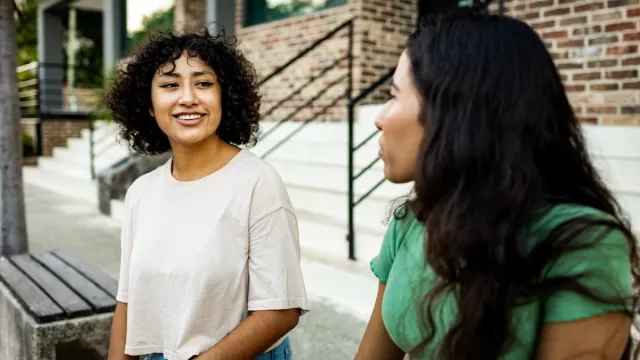
We don’t always put the same sustained effort into our platonic connections as we do our romantic ones. Once you get close enough to someone, it’s easy to assume they’ll be a friend for life—but friendships take work, too, and it’s important that you make time to cultivate these relationships as well. Even if you think you know all there is to know about those in your close circle, there will always be more to learn. With that in mind, we talked to different experts to get their best advice on how you can create stronger bonds. Read on to discover 13 deep questions you should ask your close friends.
RELATED: How to Make Friends as an Adult: 16 Steps to Follow.
1
“How do you think we’ve both changed since we became friends?”
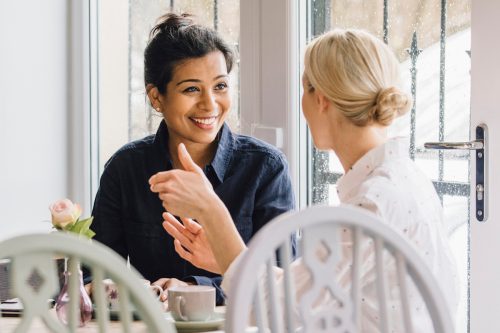
There’s a good chance that you’ve been friends with those closest to you for some time, which likely means you’ve both changed in certain ways over the years. Shari Leid, friendship expert and founder of An Imperfectly Perfect Life, says it’s important to reflect on that change by asking your friend for their thoughts on it.
“Acknowledging your growth can enhance your understanding of each other and your evolving friendship,” she shares.
2
“If you could change one thing about our relationship, what would it be and why?”
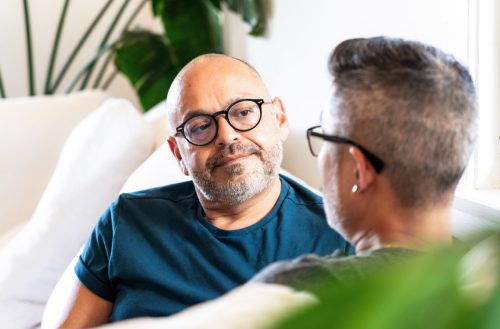
It’s also good to acknowledge that even the closest friendships are not perfect. Asking your friend about any changes they would make in your relationship “invites honest feedback, reflection on mutual growth, and highlights areas for improvement,” according to Jacob Coyne, founder of the mental health organization Stay Here.
“It’s not just about creating closer connections; it’s about providing a safe space for expression,” he explains.
3
“What makes you feel like I really care or don’t care about you as a friend?”

Not everyone feels love and appreciation in the same way. Even so, “most people often don’t communicate what they truly need for a friendship to thrive,” relationship expert Nicole Moore tells Best Life. Combat this by asking your friend about it directly.
“By having an honest conversation with your friend about what they need from you in order to feel cared about and loved, you can make sure to do your best on your side of the street to really be a friend to them in the way that they need,” she says.
Moore says your friend will likely feel so touched that you took the time to ask them about their needs that they’ll return the favor to ask you about what you need.
“With clear expectations and guidelines as to what each person in the friendship needs to feel like the other person is a good friend, you’ll create a rock solid friendship,” she adds.
RELATED: 210 Deep Questions to Ask for a Closer Connection.
4
“When do you feel most connected to the people in your life?”

You don’t have to just focus your questions on your own friendship, of course. Asking your friend about how they feel most connected to everyone in their life can be revealing and thought-provoking, too, according to Julia Heavner, PsyD, a licensed clinical psychologist based in Baltimore.
“People vary greatly in what makes them feel most connected to others—for some it is sharing a new and exciting experience together, while for others, it is doing mundane daily tasks together,” Heavner notes. “This can be a way to learn something new about one’s friend and provide the opportunity to be intentional about connecting with them in the most effective way moving forward.”
5
“When have you felt most let down by people in your life?”

At the same time, it’s also important to ask your friends about the negative experiences they’ve had in their relationships.
“A question such as, ‘When have you felt most let down by people in your life?’ can evoke difficult emotions, but it allows the speaker to share something vulnerable and have the opportunity to be understood and validated,” Heavner says.
This can help you better understand your friend and their triggers, as well as help them “move past difficult emotions such as resentment, sadness, anger,” according to Heavner.
6
“How do you feel your childhood has influenced your adult relationships?”

Asking someone about their childhood and how they think it affects them now can be impactful as well, according to family law attorney Cynthia Hernandez.
“This prompts reflection on deep-seated patterns and behaviors in relationships, inviting a level of vulnerability and self-awareness,” she explains. “In my work, acknowledging these influences often opens the door to resolving present conflicts, as individuals understand the origins of their reactions and interactions with others.”
7
“What life experience has shaped you the most and how?”

We’re not only affected by our childhoods, however. Inquiring about your friend’s most influential life experiences in general invites them to “share pivotal moments that have contributed to their current mindset and values,” according to Hernandez.
“Engaging in such conversations can forge a stronger bond by providing insights into their struggles, triumphs, and personal growth journey,” she says. “Similarly, in my mediation sessions, encouraging parties to articulate their fundamental concerns and experiences often leads to greater empathy and understanding, facilitating more amicable resolutions.”
RELATED: 8 “Polite” Questions That Are Actually Offensive, Etiquette Experts Say.
8
“What’s one of your core values or beliefs that has really shaped who you are?”

Some people also have strong values that aren’t based off any one experience in their life. It can be helpful to ask them to share the belief they think has shaped their identity the most, Rychel Johnson, LCPC, a mental health expert in Kansas, says.
“You’re signaling you care about who they are at their core, not just surface chit-chat,” she notes.
9
“What is the best advice you’ve ever received?”
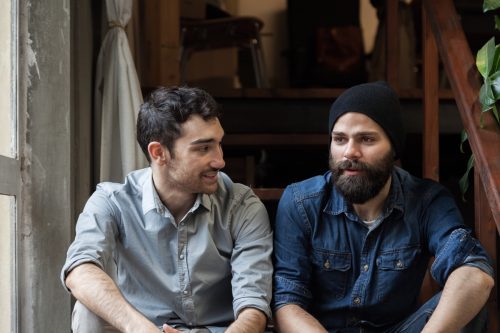
Another way you can “gain a deeper understanding of your friend’s values, beliefs, and the lessons they’ve learned along their journey” is by asking them about the best advice they’ve ever received, Natalie Rosado, LMHC, licensed mental health professional and founder of Tampa Counseling Place, says.
“This provides an opportunity for them to share wisdom that has had a significant impact on their personal growth and decision-making processes,” she shares. “Additionally, it opens the door for meaningful conversations about life’s challenges and how they’ve navigated them, fostering mutual support and understanding within your friendship.”
10
“How would I know when you’re having a hard time?”

We all react to life’s stressors in different ways, so it can be hard to know when someone else is going through a difficult time unless you know what to look for. Don’t shy away from asking your friend for some of their more noticeable signs.
“This gives the other the sense that the inquirer cares about their distress and wants to be tuned into their emotional state,” Heavner explains. “If one can accurately perceive when a friend is struggling in life, one can be a more reliable source of support.”
11
“What’s something you’ve always wanted to try but haven’t yet?”
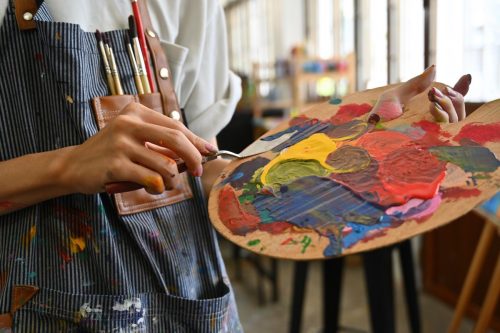
While it’s good to learn about your friend’s life experiences, core values, and stress signals, Sal Raichbach, PsyD, licensed clinician and chief clinical officer at Haven Health Management, says you should also try to get to know their interests and passions better.
“Maybe there’s a side of them you’ve never seen before, or maybe they have a hidden talent waiting to be discovered,” Raichbach says. “Asking them about what they’ve always wanted to try but haven’t yet also opens up the opportunity for future experiences and adventures together—allowing you to create even more memories and shared interests.”
12
“What are your biggest dreams for your life?”

If you are truly committed to being “friends for life,” you should know what your friend actually wants and envisions for themselves in the future.
“Many friendships keep the friends locked in to their current reality or to the past and these friendships can actually stifle personal growth,” Moore cautions. “But knowing your friend’s goals and holding space for them to achieve them can create the space for your friendship to grow and evolve over time rather than staying stagnant.”
13
“Which ads are popping up on your social media lately and why?”

Talking to your friends about the ads they are seeing online might seem a little silly at first, but there’s actually so much someone can learn through this, New York-based therapist Ricki Romm, LCSW, tells Best Life.
“This is a great question because today’s algorithms seem to ‘know’ us better than we know ourselves,” she points out. “It’s the things we Google but haven’t necessarily started talking about.”
Romm says this question is guaranteed to generate “interesting results.” You may learn that your friend is seeing ads for business coaching because they’re dreaming of opening up a restaurant. Or maybe you find out that your friend is considering moving in with a partner, because they’re seeing ads for furniture.